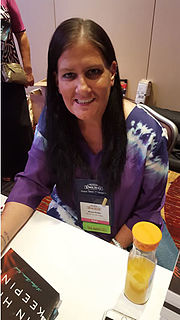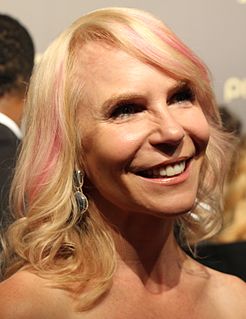A Quote by Nora Roberts
Happily ever after?" "If justice doesn't triumph and love doesn't make the circle in entertainment fiction, what's the point? Real life sucks too often.
Related Quotes
She wanted happily ever after more than he could possibly know. She wanted forever. Problem was, she just wasn’t sure she believed in it anymore. It was why she clung to her fiction so much. She immersed herself in books because there she could be anyone and it was easy to believe in love and happily ever after
I came to fantasy fairly late. For some ten years, I had been happily writing fiction and non-fiction for adults. But I always loved fantasy, whether for adults or young people; and at that particular point in my life, I wanted to try it, to understand it, as part of the process of learning to be a writer. The results were beyond anything I could have foreseen. As I've said often and elsewhere, it was the most creative and liberating experience of my life.
There are two basic defenses for an open ending: one is, If you read carefully enough, you'll know what happened. And the other is, That's how life is: things don't come to neat endings, there isn't a "happily ever after." But if you take that second line of defense, then I think you have to make the point that the writer has shown the range of possibility.
Life isn't happily ever after... It's work. The person you love is rarely worthy of how big your love is. Because no one is worthy of that and maybe no one deserves that burden of it, either. You'll be let down. You'll be disappointed and have your trust broken and have a lot of real sucky days. You lose more than you win. You hate the person you love as much as you love him. But you roll up your sleeves and work - at everything - because that's what growing older is.

































